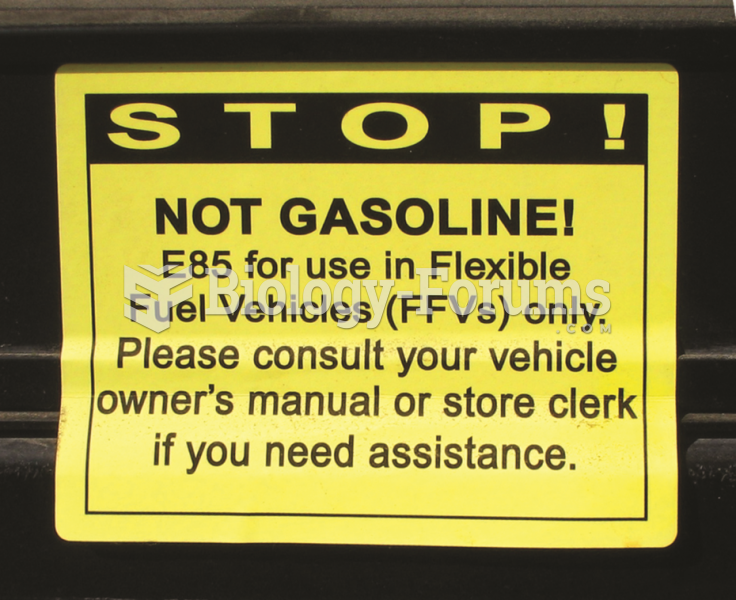|
|
|
Eating carrots will improve your eyesight. Carrots are high in vitamin A (retinol), which is essential for good vision. It can also be found in milk, cheese, egg yolks, and liver.
For pediatric patients, intravenous fluids are the most commonly cited products involved in medication errors that are reported to the USP.
Long-term mental and physical effects from substance abuse include: paranoia, psychosis, immune deficiencies, and organ damage.
All adults should have their cholesterol levels checked once every 5 years. During 2009–2010, 69.4% of Americans age 20 and older reported having their cholesterol checked within the last five years.
Children with strabismus (crossed eyes) can be treated. They are not able to outgrow this condition on their own, but with help, it can be more easily corrected at a younger age. It is important for infants to have eye examinations as early as possible in their development and then another at age 2 years.
 Arthroscopic surgery involves the surgery of a joint with the use of a flexible arthroscope and othe
Arthroscopic surgery involves the surgery of a joint with the use of a flexible arthroscope and othe
 In 2013, Americans learned that the federal government massively surveys their phone calls and e-mai
In 2013, Americans learned that the federal government massively surveys their phone calls and e-mai





